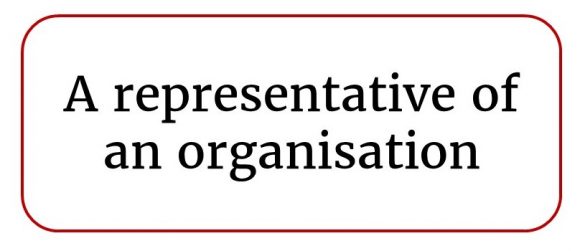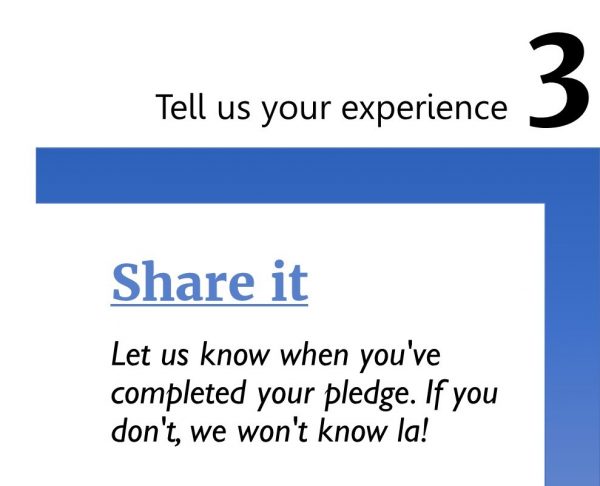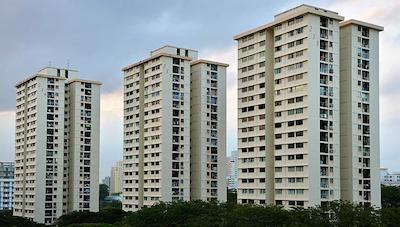 For some time, AWARE has sought changes to HDB rules to improve housing access for single-parent families. MND has often responded that HDB exercises “flexibility” in favour of such families on a “case-by-case” basis. It suggests that even if rules appear exclusionary, these families’ needs can be met through a discretionary approach.
For some time, AWARE has sought changes to HDB rules to improve housing access for single-parent families. MND has often responded that HDB exercises “flexibility” in favour of such families on a “case-by-case” basis. It suggests that even if rules appear exclusionary, these families’ needs can be met through a discretionary approach.
However, our experience suggests that even with a case-by-case approach, needs are going unmet. Moreover, while discretion may be used to improve outcomes, it involves uncertainty which imposes costs on applicants. Thus, where possible, rules should be designed to reduce the number who must rely on case-by-case evaluation.
Below we discuss our obervations based on experience with the housing situation of 20 single parents, whose cases we have followed after the publication of our research report (with accompanying Annexes) on single parents’ access to public housing in February 2017. Of these 20 parents, 13 had previously been interviewed for our research report. Our observations have three major themes:
- The costs and uncertainty of case-by-case appeals
- The outcomes of case-by-case appeals: needs remain unmet
- The role of public rental housing in meeting long-term needs
The costs and uncertainty of case-by-case appeals
Many single parents go through multiple channels to seek discretionary assistance – MPs, social workers, NGOs including AWARE, and HDB itself. All the 20 cases we followed have gone through at least one of these channels; some have pursued more than one.
- Appeals impose stress and cost, disadvantaging those with fewer means. Single parents describe the process as frustrating, often involving repeated appeals and great uncertainty. Some expressed that their issues were only resolved because they went out of their way to fight – by going to HDB several times, and trying different channels. Outcomes may thus be decided not by need, but by whether a single parent has time and energy (affected by factors like health) and confidence in the face of bureaucracy.
- Confusion about channels. As it is unclear whether the different appeals channels produce the same results, there is confusion on the ground about how to proceed. Some believed certain MPs would be more effective than others, and some thought a social worker was most effective.
This uncertainty was shared by social workers, who had different levels of access to HDB. Some used the same general channel as single parents: emailing HDB and waiting for a caseworker to be assigned. The caseworker could be unresponsive or reject appeals without offering alternatives. This public uncertainty about channels, including whether FSCs make a difference, undermines the rationality of the case-by-case system.
- Miscommunication and misinformation. Some single parents only found out certain information after making an appeal – information which should have been proactively offered in the first place. One was told by HDB, at the time of renewing her public rental housing lease, that she could not make further renewals in the future, causing her great worry. However, after appealing she found out that she could continue staying. The miscommunication had caused unnecessary panic. Another found out that she already qualified to be exempted from debarment only after appealing. Other individuals, with less confidence in approaching bureaucracy, might not have found out such information and might have pre-emptively made other – potentially less suitable and more costly – housing arrangements.
The outcomes of case-by-case appeals: needs remain unmet
While the exact criteria for the exercise of discretion are unclear, the case-by-case appeals seem to generally exclude those believed to be able to live with other family members, or to afford other housing options. For example, out of about 400 single unwed parents under the age of 35 who appealed to either buy or rent a flat from HDB with their children, only one-fifth of the cases were approved, while the rest were determined by HDB to have other housing options.
Our observations suggest that the criteria are too restrictive and continue to leave the needs of families unmet.
- Lack of transparency in what qualifies as ‘over-crowding’. HDB’s assessments of over-crowding are not transparent, resulting in conflicting perspectives between single parents and HDB. By contrast, in Canada and the EU, published Minimum Space Standards are used to determine over-crowding. These take into account occupants’ relationships, gender and age. In Scotland, the standards state that single parents and children should each have their own room, but here, single parents sharing a room with their children in someone else’s home does not appear to be considered over-crowding. Criteria should be published to improve transparency and public understanding.
- Over-reliance on assumptions of family support. Beyond the question of physical space, many single parents express discomfort with living with other family members, due to the lack of personal space, privacy, tension or bad relationship, etc. The feeling that they are intruding into someone else’s home and lives is also common. When single parents have to share a room with their children, this can be inconvenient or even simply inappropriate depending on their age and gender.
Furthermore, there is an inherent uncertainty and dependency involved in staying with family members. Circumstances change. One single mother was deemed not to require assistance because she was staying in her sister’s flat; yet a mere month later, we found she had to move out of the flat with her child as her sister was planing to start a family. HDB’s one-off determination took no account of this possibility.
- Financial difficulties. The determination that a given single parent can afford non-subsidised housing may not take into account competing financial needs and priorities, such as expenses for their children or parents.
Rules determining eligibility based on marital status may require single parents to deplete their savings in a way that is not required from double-income households. For example, a married person can access a BTO without any assessment of their ability to afford alternatives (beyond the income cap), but an unmarried parent seeking discretionary assistance may be denied help if they are deemed to be able to afford an alternative – essentially, requiring them to dig deeper into their financial resources. Likewise, if a divorced parent has shared care and control, they may be able to buy a new flat as a second-timer straightforwardly if they remarry, but they are unable to do so without their ex-spouse’s consent if they remain single. Thus, different demands may be made on the financial situation of the family depending on marital status.
The role of public rental housing in meeting long-term needs
It has often been suggested by the Government that rental housing is an interim rather than longer-term housing solution, and only meant for the “truly needy”. The eligibility criteria and design of public rental housing are therefore guided by the principles that such housing is not a permanent solution for its tenants and should not encourage entrenchment. This may explain why only 1-room and 2-room flats are offered and not bigger flats, since they are not meant for permanent residence. However, this also forces bigger families to live in a crowded situation.
Despite this intent, the outcomes of the case-by-case appeals system do in fact result in families renting for extended periods, and in units not designed for long-term residence. For example, a family of five were living together in a two-room rental flat, which quite clearly to us, qualifies as a situation of overcrowding. The single parent expressed a desire for home ownership, but was deemed to be financially unready. What then happens to such families? What are their options? Another family has been renting for ten years. Some live there for all or almost all of the duration of their children’s time in primary school or in adolescence.
This points toward a need to rethink the purpose of public rental housing and consequently the principles underlying the rules governing it. If these families are believed unready for home ownership, beyond social assistance to meet daily needs, how are they being assisted to become ready? It seems that for many, transition to home ownership cannot realistically be expected during their children’s formative years. Is it time to pragmatically acknowledge that public rental housing is already – in practice – a long-term option for a number of families? If so, our policies should work to making it fit for that purpose, by improving the conditions, supply and accessibility of such housing, instead of holding on to the home ownership paradigm at all costs.
This may involve revamping the current Public Rental Scheme or even adding a new model of rental housing, which specifically provides for longer-term residents, perhaps with gradated rent levels over a wider range of incomes. One key policy that would have to change is the current requirement for flat-sharing, which creates difficulties for many tenants. In fact, a recent street survey on homeless persons in Singapore revealed that it has led to people moving out and sleeping in the streets as they cannot get along with their co-tenants. Single parents who had to share units also raised concerns about their children’s safety, lack of space and privacy.
Conclusion
The experiences of single parents with the case-by-case approach show that it can be inefficient and inadequate in meeting their needs. Behind every successful appeal is precious time and energy spent going to HDB or queuing to see an MP, and officers having to review, assess and do more paperwork. For every successful appeal, there are more appeals that have failed or a single parent who may have given up altogether, accepting circumstances that penalise them and their children over many years, with serious implications for equality of opportunity and social mobility. The right to housing is universal, and the housing system, its rules and its processes should only facilitate and not hinder access. Housing is a limited resource, but in Singapore, there is enough for us to ensure decent, stable housing for everyone. We can do better to ensure that everyone has adequate shelter which will enable them to lead healthy lives.
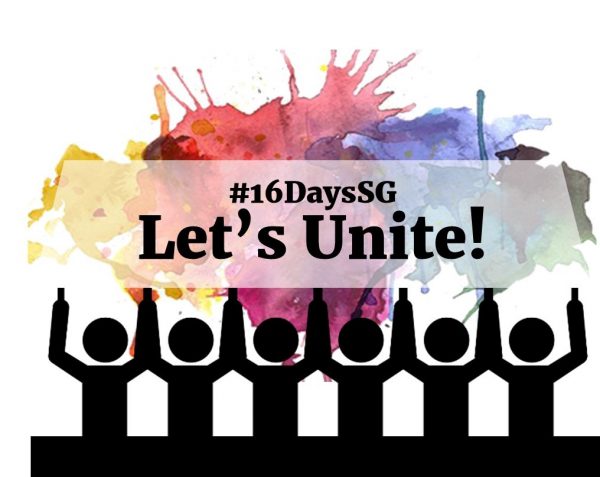 After the online movement #metoo papered social media feeds with women’s experiences of sexual violence, the Let’s Unite campaign, led by gender equality group AWARE, invites the public to start taking collective action to end violence against women.
After the online movement #metoo papered social media feeds with women’s experiences of sexual violence, the Let’s Unite campaign, led by gender equality group AWARE, invites the public to start taking collective action to end violence against women.



 For some time, AWARE has sought changes to HDB rules to improve housing access for single-parent families. MND has often responded that HDB exercises “flexibility” in favour of such families on a
For some time, AWARE has sought changes to HDB rules to improve housing access for single-parent families. MND has often responded that HDB exercises “flexibility” in favour of such families on a 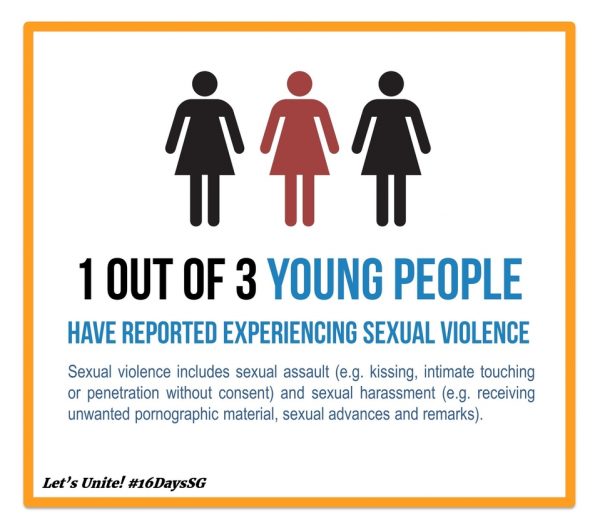 Recently, women have been sharing on social media their experiences with sexual harassment and violence in response to the hastag campaign #metoo, and high-profile cases in Hollywood have been in the news, revealing that such harassment is common, especially in workplaces.
Recently, women have been sharing on social media their experiences with sexual harassment and violence in response to the hastag campaign #metoo, and high-profile cases in Hollywood have been in the news, revealing that such harassment is common, especially in workplaces.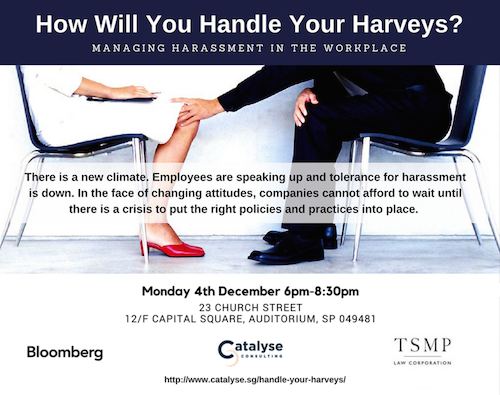 There is a new climate. Employees are speaking up and tolerance for harassment is down. In the face of changing attitudes, companies cannot afford to wait until there is a crisis to put the right policies and practices into place.
There is a new climate. Employees are speaking up and tolerance for harassment is down. In the face of changing attitudes, companies cannot afford to wait until there is a crisis to put the right policies and practices into place.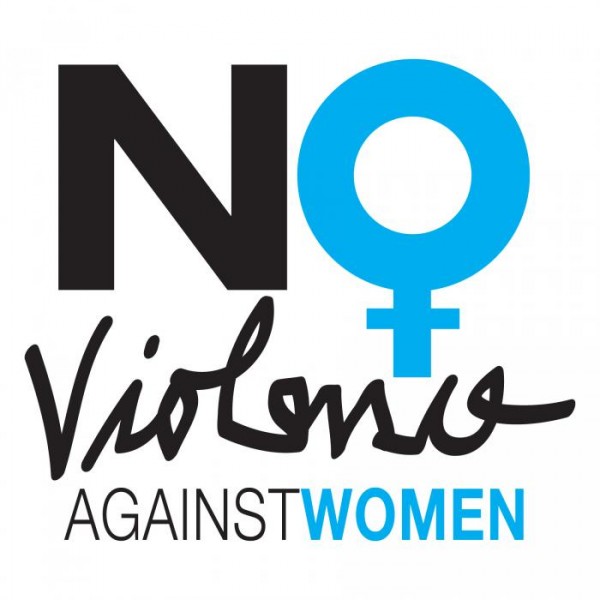 On 14 November 2017, the United Nations CEDAW Committee – which monitors compliance with the Convention on the Elimination of All Forms of Discrimination Against Women – launched
On 14 November 2017, the United Nations CEDAW Committee – which monitors compliance with the Convention on the Elimination of All Forms of Discrimination Against Women – launched 
